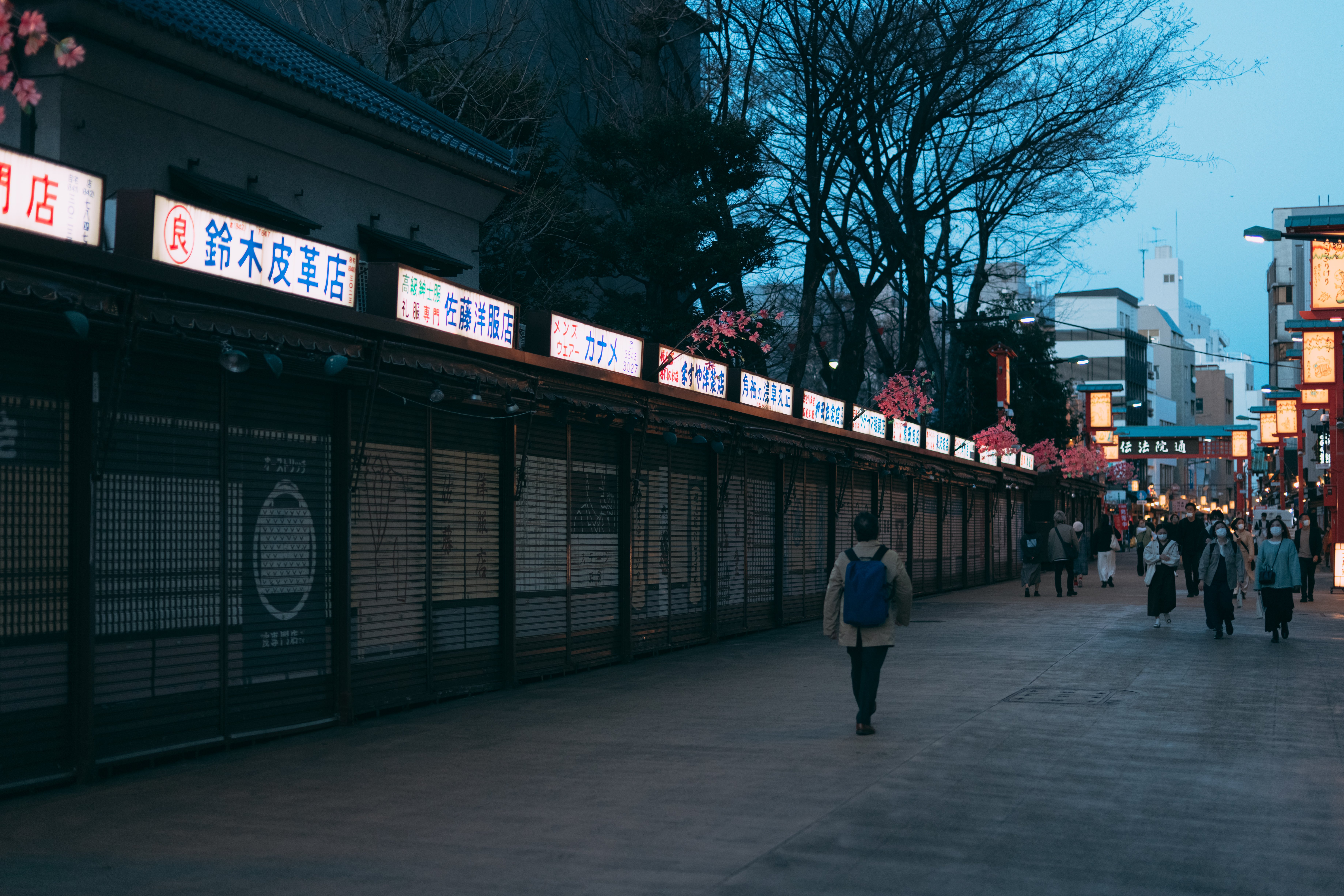
Decades-old shops kept in families for generations could be shuttered as a result.
The Tokyo neighborhood of Asakusa is a major attraction for both tourists and locals, thanks to the iconic Sensoji Temple and its striking Kaminari Gates, but it’s also known to be a place full of delicious Japanese food, unique hotels, and traditional Japanese-style souvenirs.
Sadly, businesses in the area are in danger of closing, and not just because of the pandemic. Though a huge drop in tourists has resulted in the shops around Sensoji suffering from a huge drop in sales, there’s now a bigger threat on the horizon for shop owners on one Asakusa shopping street: the local government.

Asakusa has many shopping streets, the most famous of which is the street behind the famous Kaminari gates that leads up to the temple, Nakamise-doori, which is filled to the brim with souvenir shops and food stalls. But though shop owners on Nakamise-doori were shocked when the temple raised their rent by 16-fold in 2017, their livelihoods are not the ones in danger by the ward’s government. Rather, those who might be forced into eviction are those along the street that lines the grounds of Sensoji Temple and its neighboring Denboin Temple, Denboin-doori.
▼ Denboin-doori (“Denboin Street”) is written as “Dempoin Street” in Google Maps.
The shops that line Denboin-doori are the epitome of Edo-era Japanese style buildings, and many have operated for decades in the same family. They sell traditional Japanese trinkets and products like fans, hair combs and pins, and clothing, many of which are handmade. They’re a great place for international tourists to find that perfect souvenir or gift for a loved one at home, and some would say it’s even better than Nakamise-doori, which can sometimes be unbearably crowded.
▼ Denboin-doori
Though the shops have been established for decades already, the local government of Taito Ward, which has jurisdiction over the area, claims they are illegal establishments. Officials say that the land they occupy is public land, and the shops have never been given permission to open there. The shop owners, on the other hand, claim they were given permission decades ago, without obligation to pay land taxes and rent, but the government doesn’t seem to have any records of such an agreement. Thus, after numerous warnings and conferences, Taito Ward is calling for their evictions.
The Association for Business Prosperity on Asukusa Denboin-doori, in an attempt to keep their family-run businesses, started up a petition in May which collected over 7,000 signatures. Locals were heard to voice their support for the cause, claiming it would be a terrible loss of culture and history. Japanese netizens were generally inclined to agree:
“Is there any benefit to throwing them out as opposed to the current situation?”
“I really don’t understand why they’re making a big deal about it now of all times. Those businesses have been there for 40 years.”
“Just let them pay the land taxes and the rent and leave them be.”
“The ward is the problem in my opinion, for letting them exist illegally for forty years.”
“Why not work out a compromise that isn’t as extreme as eviction? I can’t stand all this drama in my hometown.”
“Next will be Nakamise-doori.”
“Why are they doing this now to Denboin-doori? It’s tyranny.”
Some, however, speculated that the government might be reasonable in their demands:
“But it is kind of strange for the government to continue to allow these shops to operate illegally after 40 years. The ward has warned them about 10 times already after all.”
“It probably progressed slowly, from a black market after the war to stalls to street vendors to permanent shops, a symbol of the change of times but something that they can’t just keep letting them get away with.”
“How are the surrounding businesses okay with them not paying their rent and taxes?”
“Sounds to me like they had a verbal promise from a Showa-era official and that’s the problem.”
The Association intends to submit the petition to the government, with the hopes that it will help change their minds, but as the government has been allegedly trying to warn them since 2014, who knows what the outcome will be. We can only hope that a fair compromise can be met that benefits both parties, and that a historic part of Asakusa won’t disappear as a result.
Source: Asakusa Station Guide, Tokyo Web, 0 Tere News via Livedoor News via Hachima Kiko, Twitter/@livedoornews
Top image: Pakutaso
Insert images: Pakutaso
● Want to hear about SoraNews24’s latest articles as soon as they’re published? Follow us on Facebook and Twitter!

No hay comentarios:
Publicar un comentario